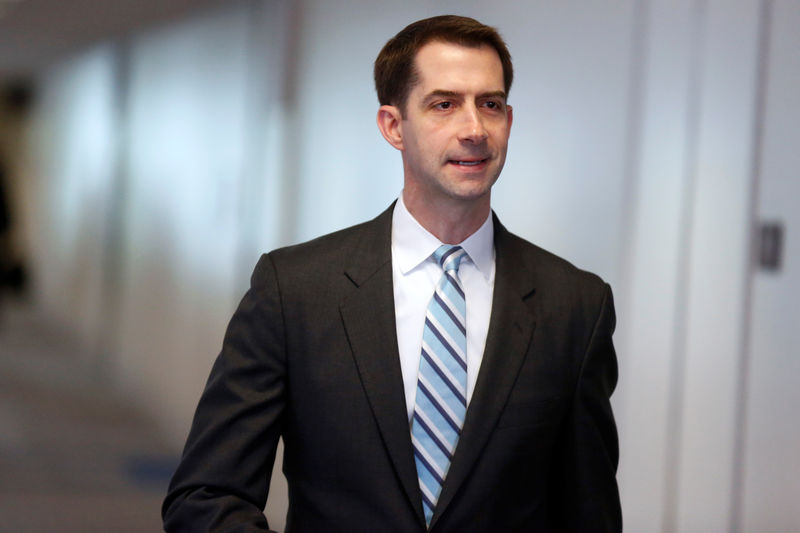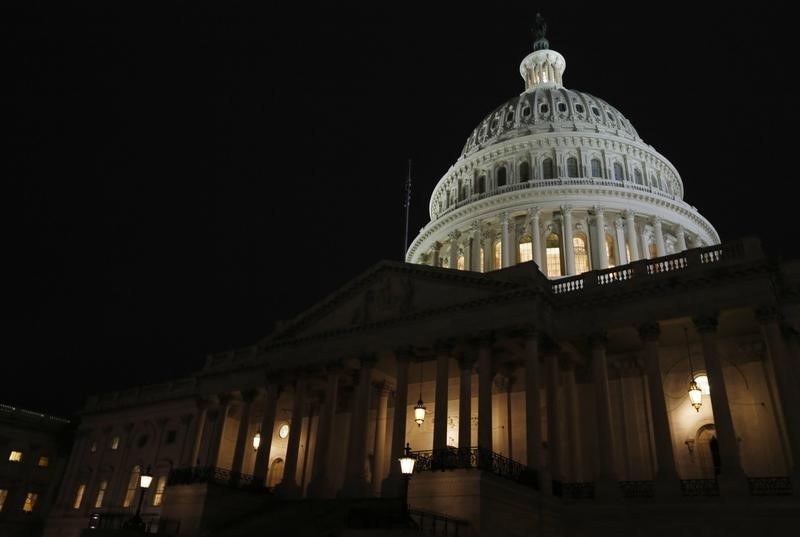By Mark Hosenball
WASHINGTON (Reuters) - A bipartisan group of U.S. senators on Monday announced they were introducing a bill to toughen U.S. laws requiring shell companies to disclose their true owners' identity.
Two Republicans on the Senate Banking Committee, Tom Cotton and Mike Rounds, and Democratic committee members Mark Warner and Doug Jones said their proposed new law would improve corporate transparency, strengthen national security and make it easier for investigators to crack down on illicit financial activity by terrorists, drug dealers and other criminals.
The senators said one of the principal aims of the new law would be to require shell companies, which the senators said were "often used as fronts for criminal activity" to disclose their ultimate, real owners to the U.S. Treasury Department.
The senators said the bill would also update outdated federal anti-money laundering laws by improving communications between law enforcement and regulatory agencies and the financial industry and "facilitating" the adoption by the industry and regulators of advanced technology.
In the House of Representatives, meanwhile, Democratic representative Carolyn Maloney said the Financial Services Committee intended this week to consider a bill introduced by a bipartisan group of members which contains similar requirements.
The House bill would require companies to disclose their true owners to federal authorities at the time the company is formed and would require such owners to provide their names, dates of birth, current addresses and drivers license or valid passport numbers.
Senators sponsoring their newly-introduced bill said they had named it the Improving Laundering Laws and Increasing Comprehensive Information Tracking of Criminal Activity in Shell (LON:RDSa) Holdings (ILLICIT CASH) Act.
"As a former U.S. Attorney, I am all too familiar with criminals hiding behind shell corporations to enable their illegal behavior," Jones said, noting U.S. anti-money laundering laws had not kept pace with increasingly sophisticated efforts by criminals and terrorist groups to move illicit funds around the world.
"Our draft bill makes it easier for law enforcement to track ill-gotten gains without burdening legitimate businesses," Cotton said.
One key provision of the proposed Senate legislation would be to create federal reporting requirements that "all beneficial ownership information" of U.S. registered corporations would be maintained in a "comprehensive federal database" accessible to both federal and local investigators, the senators said.
The bill also contains provisions to improve the effectiveness of the Financial Crimes Enforcement Network, the Treasury agency which is currently supposed to take the lead in monitoring suspicious financial transactions. It also would compel foreign banks to comply with U.S. agencies' subpoenas and authorize contempt sanctions against banks which fail to comply.

